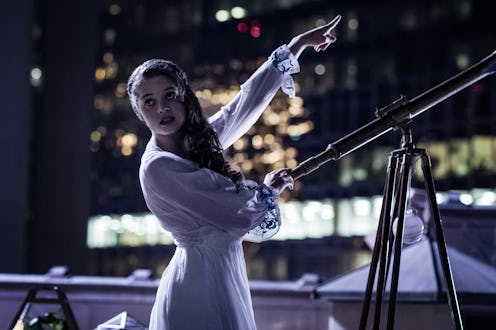
Each week, American Gods adds more characters who offer a new take on ancient mythology. The May 14 episode stages a meeting between Shadow and another one of the Zorya sisters, played by Erica Karr. She's definitely not mortal, so what god is Zorya Polunochnaya based on? The actual Slavic myth behind her is not too different from what you'll see on the Starz series and in Neil Gaiman's 2001 novel of the same name.
Zorya Polunochnaya represents the Midnight Star in Slavic mythology, while her sisters Zorya Utrennyaya and Zorya Vechernyaya represent the Morning and Evening Star, respectfully. In the Starz series, Utrennyaya is played by Martha Kelly, and Vechernyaya is played by Cloris Leachman.
However, in the common versions of the myth, only two of the Zorya sisters (feel free to read that to the tune of Hamilton's "Schuyler Sisters") are named. Gaiman gave the third sister this name himself in American Gods. He didn't completely invent this goddess, but he did give her a name.
Polunochnaya is a little sneakier than her better known siblings, who let the sunshine in and out, marking the dawn and dusk. All three of the sisters are also in charge of guarding a monster who lives in a constellation and wants to eat the universe and end the world.
In American Gods, our Zorya Polunochnaya is one of the Old Gods. She can be found stargazing, and mostly keeps to herself. Her older sisters are more social when Shadow and Wednesday come to call.
The sisters are known as the Auroras in Slavic mythology, a fitting name and a lovely image. In general, not as much is known about these legends, particularly compared to Greek and Roman tales. I like that the old gods in American Gods aren't all common. You probably read Edith Hamilton's book in high school, and you know that the tiny sliver on Norse mythology in the back was the most interesting part, anyway. I'd much rather learn about Mad Sweeney, Sheba, and the Zoryas, than the deities I already studied.
In the case of Zorya Polunochnaya, American Gods took a figure who is often ignored or unaccounted for in Slavic mythology and gave her a story. She's mysterious, as midnight should be, and fascinating. Hopefully Shadow and the audience will see more of her as the series progresses.